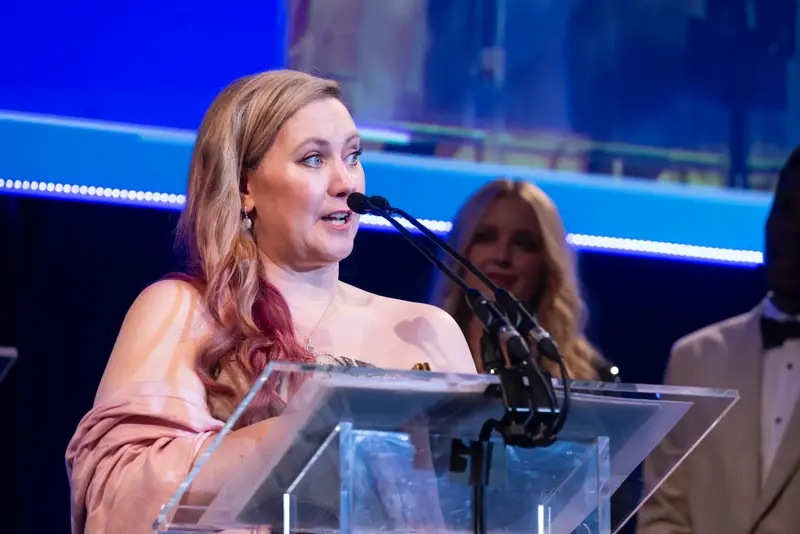You are viewing your 1 free article this month. Login to read more articles.
Will Storr | 'Life is hard enough without beating ourselves up for not being Gandhi'
 Caroline Sanderson
Caroline SandersonCaroline Sanderson is a non-fiction writer, editor and books journalist. Her books include a travel narrative, A Rambling Fancy: in the F ...more

Caroline Sanderson is a non-fiction writer, editor and books journalist. Her books include a travel narrative, A Rambling Fancy: in the F ...more
When Picador editor Kris Doyle emailed me about Will Storr’s Selfie: How We Became So Obsessed and What It’s Doing to Us, he wrote: “Will’s book has completely changed the way I think about myself and our society, and it’s changed the way I live my life.”
It’s quite a claim for a book that isn’t about clean eating or digital detoxing; it’s not actually a self-help book at all. Rather Selfie gives us a broad cultural history of individualism in the Western world, from Ancient Greece to our present digital era, incorporating politics, economics, neuroscience, social psychology and a slug of autobiography along the way. Most presciently, it considers how the Human Potential Movement, which took off in California in the 1960s, led to the Western self “being lovingly penetrated by narcissism” and to our current social media frenzy, which pitches “self against self in ceaseless competition for followers, feedback and likes”. Storr explains how the cult of self also heralded the political rise of neoliberalism (there was an “emergency Trump rewrite” last November) and societies that are all about winners and losers. And he describes his personal journey towards a more enlightened view of his own self, triggered by some hitherto under-the-radar research about human psychology. Eminently suitable for readers of both Yuval Noah Harari and Daniel Kahneman, Selfie also has shades of Jon Ronson in its subversive humour and investigative spirit.
Storr doesn’t in person altogether fit the “grumpy middle-aged man who loves his dogs more than people” description he gives himself in the book. He’s an engaging and animated presence, who laughs frequently, rapping the table with his knuckles to emphasise his points. Turns out Selfie has changed the way he lives his life too. “I know it’s a cliché, but it has been genuine therapy doing this book. I feel so much more at peace with myself,” he tells me.
Therapy - genuine and otherwise - is something Storr can speak about with good authority. Born into a strict Catholic family, he had a turbulent childhood and adolescence. “I had a very difficult relationship with my parents. When I was at school, I was always in trouble. I was very loud and badly behaved. I failed all my exams and I ended up leaving school and working in a shop. I was in therapy from the age of 18, all through my twenties. The pervading theme of it was: your parents didn’t love you enough, and that’s given you low self-esteem.”
Selfie shtick
For years - despite being talent-spotted by Loaded magazine and subsequently pursuing a successful career as an author and award-winning long-form journalist for the likes of the Guardian, the Sunday Times and the New Yorker - Storr clung to the low self-esteem explanation for what he saw as his continued personal failings and the “iron vest” of his depression. Despite giving up drinking and getting married, he continued to berate himself for being neurotic and anti-social, “caught in a lifelong rhythm of expecting more from myself than my talent and character could supply. We believe in this self-help culture which tells us: if you do these things, you can become this perfect version of yourself. I went on this neuro-linguistic programming course and was told, ‘Gandhi had 24 hours in his day, and so do you!’” But then the writing of Selfie brought an epiphany. “I’ve been told my whole life that I’m broken and I’ve bought it. But then I discover it’s not a bug in my system: it’s just how I was born. And so now I don’t judge myself, or scold myself, or beat myself up anymore.”
I’ve been told my whole life that I’m broken and I’ve bought it. But then I discover it’s not a bug in my system: it’s just how I was born. And so now I don’t judge myself, or scold myself, or beat myself up anymore
Essentially, argues Storr, citing the work of behaviour scientists such as Daniel Nettle, we all conform to a handful of different personality types that are more or less fixed. He quotes Nettle writing memorably: “There’s no more point in me wishing myself to have a higher or lower level of extraversion than there is to wish I were, say, born in 1777.” So our striving to perfect ourselves - as fuelled by flawless images of the beautiful, happy, thin people with whom we unfavourably compare ourselves; or by a fear of social ostracism which goes back to our tribal origins; or by the still pervasive influence of such figures in the Human Potential Movement such as Carl Rogers, Dale Carnegie, Fritz Perls and Ayn Rand - is largely futile.
Storr’s “eureka” moment came when he discovered the work of Roy Baumeister whose research comprehensively debunked the mooted positive effects of high self-esteem. “Which of course is what I grew up with.” The “dark lie” at the heart of perfectionism, says Storr, is this: “You’re limited. Imperfect. And there’s nothing you can do about it”.
The consequences of our human perfectionist culture have now come home to roost, says Storr, as evidenced by rising suicide rates in the Western world, and record levels of eating disorders and self-harm, for example. Between 8%-10% of the adult population in the UK and the US are on anti-depressants. “We are in denial of our biology, we forget that we’re animals.” Instead, says Storr, we prefer to think of ourselves as gods, the wannabe heroes of our own stories. “We don’t want to hear that we’re stuck. We don’t want to hear about stable personality traits. Inspirational stories give us meaning and hope. But there’s a point where they become toxic. We massively underestimate difference. This idea that you only have to put the right code in and we’ll all soar is just not true. Because if people are born with different skills and personalities, then the system isn’t fair from the get-go. Even if we were born with the same amount of money in the bank and there was no class system, it still wouldn’t be a level playing field. It’s true that ‘grit’ is great. But can we put ‘grit’ into people? That I’m not so sure about.”
Selfie is not all me, me, me either. In the face of our prevailing perfectionism, argues Storr, we also tend to judge other people who do not succeed in perfecting themselves - those who make mistakes, and even those who dare to disagree with us - much more harshly. As well as being unkind to ourselves, we are also losing our ability to empathise with others. And this, perhaps, is Selfie’s most chilling message and its most urgent wake-up call.
I sense that Storr, who admits to still worrying about his “middle-aged spread” sometimes, would be horrified to be thought of as a self-help guru, despite his forthcoming book already having changed his own editor’s life. But with the final chapter of Selfie entitled “How to Stay Alive in the Age of Perfectionism”, I feel justified in requesting some parting nuggets of advice. Storr obliges. “Life is hard enough without beating ourselves up for not being Gandhi. So stop trying to be this perfect version of yourself. You are who you are. You can still significantly impact your happiness by changing the world around you instead.” Selfie, without being remotely fluffy, just might be the ultimate in post-truth comfort reading.









